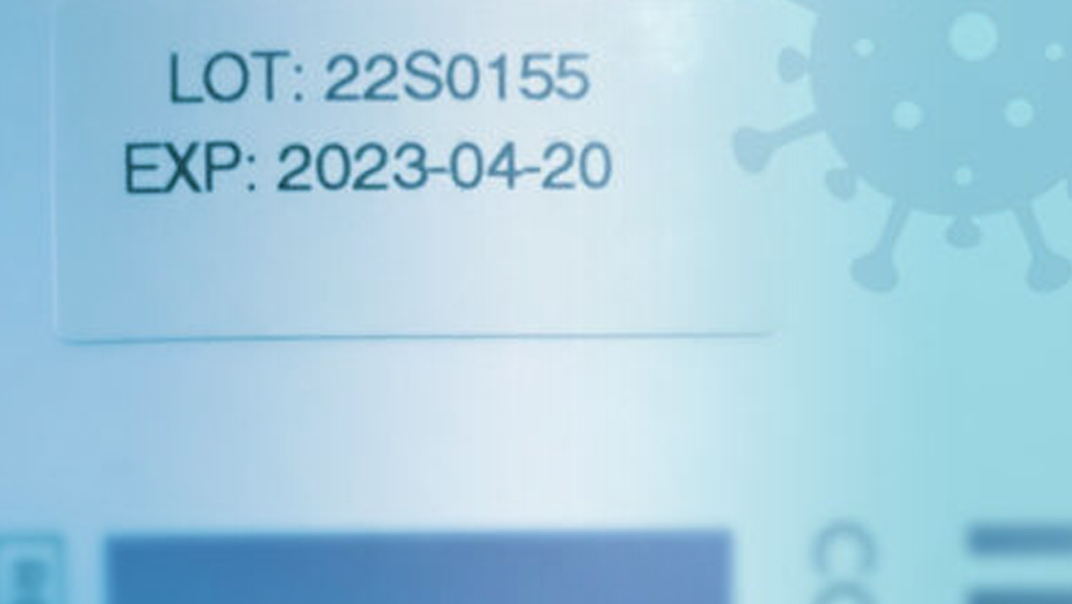Here’s How Long Some Popular At-Home Virus Test Kits Actually Last, According To The FDA
NewsJune 1, 2022

It may not always be clear when the kits will expire.
Americans were recently offered another chance to order free at-home coronavirus testing kits through the Postal Service. But since federal and state agencies have extended the shelf lives of several brands of tests, it may not always be clear when the free kits, and others purchased separately, will expire.
Although each box has an expiration date, meant to indicate when the test inside will no longer provide a reliable result, the Food and Drug Administration has given emergency authorization for shelf-life extensions of several testing kits as their manufacturers gather more data. Some states have also received F.D.A. extensions for batches of expired laboratory tests, or have endorsed their own extensions for at-home tests authorized by federal regulators. This means that some tests that are set to expire in the coming weeks may actually be usable for several more months.
In January, the F.D.A. granted a request from Florida to lengthen by three months the life span of laboratory rapid tests that had expired. In March, California’s Public Health Department approved the emergency use of at-home test kits beyond their F.D.A.-authorized expiration dates. The blanket extension is applied to all over-the-counter tests authorized by the F.D.A. as long as each test’s control line — the line that is typically next to the letter C — is easily visible when the test is complete.
Extending a product’s shelf life is not an uncommon practice. Manufacturers need time to demonstrate that a product still performs effectively after its initial expiration date, which is why many testing kits received extensions several months after their initial authorization. But some experts have expressed concern that shifting dates and poor communication about extensions could create confusion.
 “My concern is, How will the public be educated about it?” said Michael T. Osterholm, an epidemiologist at the University of Minnesota. “Can they take boxes that are about to be sent out and put new, taped expiration dates over the printing, for example? Practical solutions like that.”
“My concern is, How will the public be educated about it?” said Michael T. Osterholm, an epidemiologist at the University of Minnesota. “Can they take boxes that are about to be sent out and put new, taped expiration dates over the printing, for example? Practical solutions like that.”
In January, the F.D.A. granted a request from Florida to lengthen by three months the life span of laboratory rapid tests that had expired. In March, California’s Public Health Department approved the emergency use of at-home test kits beyond their F.D.A.-authorized expiration dates. The blanket extension is applied to all over-the-counter tests authorized by the F.D.A. as long as each test’s control line — the line that is typically next to the letter C — is easily visible when the test is complete.
Extending a product’s shelf life is not an uncommon practice. Manufacturers need time to demonstrate that a product still performs effectively after its initial expiration date, which is why many testing kits received extensions several months after their initial authorization. But some experts have expressed concern that shifting dates and poor communication about extensions could create confusion.
Some health departments have posted notifications on their websites when a manufacturer is granted an extension for its tests. But officials should not assume that everyone has access to the internet or is comfortable enough using a computer to find that information, said Cindy A. Prins, an epidemiologist at the University of Florida.
 “I think that some people have gotten the message that there are Covid tests that can be used beyond the expiration date that’s printed on the test box, but they may not be aware that it’s not true of all Covid tests,” she added.”
“I think that some people have gotten the message that there are Covid tests that can be used beyond the expiration date that’s printed on the test box, but they may not be aware that it’s not true of all Covid tests,” she added.”
If a test kit has not received an authorized extension from the F.D.A. and the box says it has expired, some epidemiologists say that it can still be used under certain conditions. Most tests remain effective for some time if they are properly stored, Dr. Prins said.
Annette Regan, an epidemiologist at the University of San Francisco, said that if the control line on a completed test is not visible, the test should not be considered valid, regardless of its result.
The F.D.A. regularly updates the life spans of at-home tests on its website. As of mid-June, these were the shelf lives of some popular test kits, according to the agency.
INDICAID Covid-19 Rapid Antigen At-Home Test (PHASE Scientific International, Ltd.): 12 Months
BD Veritor At-Home Covid-19 Test (Becton, Dickinson and Company): 6 Months
BinaxNOW Covid-19 Ag Card Home Test (Abbott Diagnostics Scarborough, Inc.): Extended to 15 Months from 12 Months
CareStart Covid-19 Antigen Home Test (Access Bio, Inc.): Extended to 12 Months from 9 Months
CLINITEST Rapid Covid-19 Antigen Self-Test (Siemens Healthineer): 11 Months
Cue Covid-19 Test for Home and Over the Counter (OTC) Use (Cue Health Inc.): 4 Months
Detect Covid-19 Test (Detect, Inc.): Extended to 8 Months from 6 Months
Ellume Covid-19 Home Test (Ellume Limited): 12 Months
Flowflex Covid-19 Antigen Home Test (ACON Laboratories Inc.): Extended to 16 Months from 12 Months
InteliSwab Covid-19 Rapid Test (OraSure Technologies, Inc.): 9 Months
Lucira Check-It Covid-19 Test Kit (Lucira Health, Inc.): 6 Months
MaximBio ClearDetect Covid-19 Antigen Home Test (Maxim Biomedical, Inc.): 6 Months
OHC Covid-19 Antigen Self Test (OSANG LLC): 8 Months
Pilot Covid-19 At-Home Test (SD Biosensor, Inc.): 6 Months
QuickVue At-Home OTC Covid-19 Test (Quidel Corporation): 12 Months
Rapid SARS-CoV-2 Antigen Test Card (Xiamen Boson Biotech Co., Ltd.): 6 Months
SCoV-2 Ag Detect Rapid Self-Test (InBios International Inc.): Extended to 10 Months from 6 Months
Article written by Jess Ruderman • June 16, 2022 • New York Times
Alain Delaquérière contributed research.



